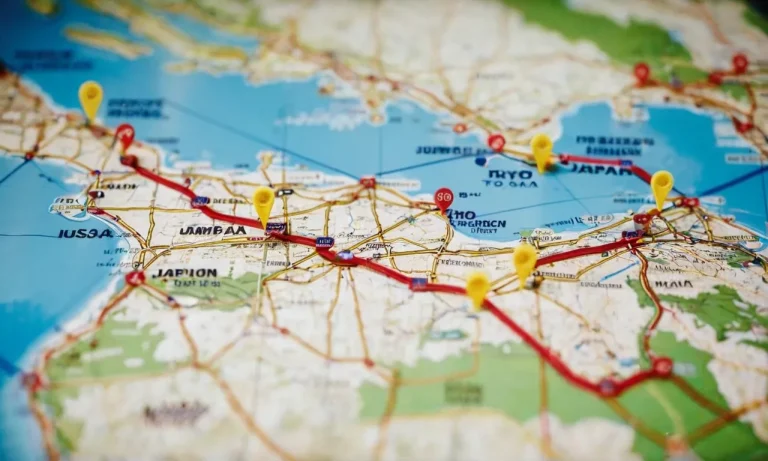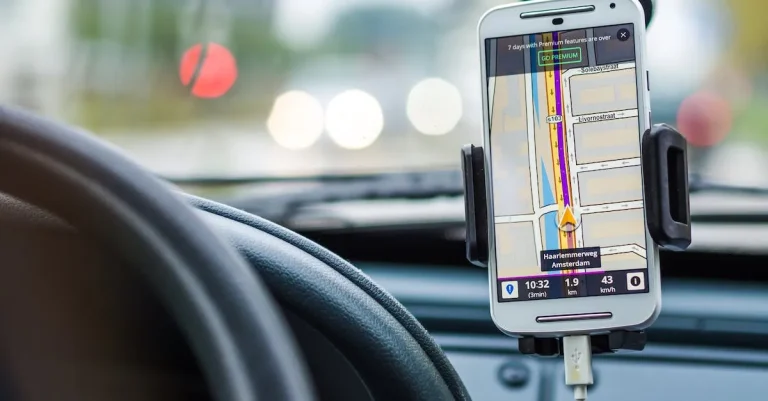For many visitors, having your own set of wheels is the best way to explore Europe’s stunning landscapes. But buying a car abroad comes with important considerations around paperwork, regulations, insurance, and more.
If you’re short on time, here’s a quick answer: To buy a car in Europe, you’ll need a residence permit, tax number, and often a bank account for the country you’re in.
Review registration steps, required documents, insurance laws, and restrictions on transporting vehicles.
This comprehensive guide covers everything you need to know about purchasing a car in Europe. We’ll walk through the buying process from start to finish, including tips for ownership as a non-resident.
Is It Possible to Buy a Car in Europe as a Tourist?
Many tourists visiting Europe often wonder whether it is possible for them to buy a car during their stay.
The answer is yes! While it may require some additional paperwork and considerations, tourists can indeed purchase a car in Europe.
However, it is important to be aware of the residency requirements and timing considerations involved in the process.
Residency Requirements
One of the key factors to consider when buying a car in Europe as a tourist is the residency requirement.
Each country has its own regulations regarding car purchases, and some may require you to have a local address or proof of residency.
For example, in Germany, you will need to provide a valid German address in order to register and insure the vehicle.
On the other hand, some countries may have more lenient residency requirements, allowing tourists to buy a car without a local address.
It is important to research and understand the specific residency requirements of the country you plan to buy a car in.
Consulting the official government websites or contacting local authorities can provide you with the most accurate and up-to-date information regarding these requirements.
Timing Considerations
Timing is another important factor to consider when buying a car in Europe as a tourist. The length of your stay and the duration of the registration process may impact your decision.
Some countries have lengthy registration processes that can take several weeks or even months.
If you are planning to stay in Europe for a short period of time, it may not be feasible to go through the entire car buying process.
Additionally, it is worth considering the time of year you plan to buy a car. Prices and availability may vary depending on the season.
For example, buying a car in Europe during the summer months when tourism is at its peak may result in higher prices and limited options.
On the other hand, purchasing a car during the off-peak season may offer more competitive prices and a wider selection of vehicles.
Before making a decision, it is recommended to thoroughly research the registration process and timing considerations in the specific country you plan to buy a car.
This will help you determine whether it is feasible and practical for you to purchase a car as a tourist in Europe.
Steps for Buying a Car in Europe
Find a Dealer or Private Seller
When buying a car in Europe, the first step is to find a reliable dealer or private seller.
Research online marketplaces, dealerships, and classified ads to find a wide range of options available.
Consider factors such as the seller’s reputation, the car’s condition, and the price range that fits your budget.
Choose a Car Model
Once you have found potential sellers, it’s time to choose a car model that suits your needs.
Consider factors such as fuel efficiency, maintenance costs, safety features, and the car’s resale value.
Take into account your daily commute and any specific requirements you may have.
Inspect Documentation
Before finalizing the purchase, it’s crucial to thoroughly inspect the car’s documentation. This includes the vehicle registration, service history, and any relevant certification.
Verify that the vehicle identification number (VIN) matches the documents and ensure there are no outstanding financial obligations or legal issues associated with the car.
It’s advisable to consult with a trusted mechanic or vehicle inspector to conduct a comprehensive inspection of the car’s condition.
Complete Purchase Contract
Once you are satisfied with the car’s condition and documentation, it’s time to complete the purchase contract.
This contract should include details such as the agreed-upon price, payment terms, and any additional conditions or warranties.
It’s recommended to have a legal professional or expert review the contract to ensure it aligns with local regulations and protects your interests.
Additionally, consider arranging appropriate insurance coverage for the vehicle before completing the purchase.
Register the Vehicle
After purchasing the car, you will need to register it in your country of residence.
It’s advisable to consult the local transportation or vehicle registration authority to understand the specific requirements and procedures.
Failure to register the vehicle within the designated timeframe may result in penalties or legal consequences.

Required Documents and Paperwork
Passport and Visa
When buying a car in Europe, one of the most important documents you’ll need is your passport.
As a foreigner, your passport serves as your identification and proof of legal presence in the country.
Make sure your passport is valid and will not expire while you are in Europe.
In addition to your passport, you may also need a visa depending on the country you are in.
Visa requirements vary from country to country, so it’s essential to check the specific regulations of the country you plan to buy a car in.
Some countries may allow you to purchase a car with just a tourist visa, while others may require a long-term or work visa.
It’s always a good idea to contact the embassy or consulate of the country you’re in for detailed information on passport and visa requirements for buying a car.
Proof of Address
Having proof of address is crucial when buying a car in Europe. This document verifies your residency and is usually required by the authorities and car dealerships.
The type of proof of address needed may vary, but common documents include utility bills, bank statements, or a rental agreement in your name.
It’s important to note that the proof of address should be recent and show your current residential address.
If you are staying in temporary accommodation, such as a hotel or hostel, you may need to provide additional documentation, such as a letter from the establishment confirming your stay.
Tax Identification
Obtaining a tax identification number is another essential step when buying a car in Europe.
This number, also known as a TIN or tax code, is used for tax-related purposes and is often required during the car purchasing process.
The process of obtaining a tax identification number may vary depending on the country you are in. In some cases, you may be able to obtain it online or through a local tax office.
It’s best to consult the local tax authority or a professional to ensure you have the correct documentation and understand the process.
Insurance Requirements Across Europe
When it comes to buying a car in Europe, understanding the insurance requirements is crucial.
Each country has its own regulations and minimum coverage levels, so it’s important to do your research before hitting the road.
Here’s a breakdown of some key insurance requirements across Europe:
1. Third-Party Liability Insurance
Across Europe, all countries require a minimum level of third-party liability insurance. This insurance covers any damage or injuries caused to a third party in an accident where you are at fault.
The minimum coverage levels vary from country to country, so be sure to check the specific requirements of the country you plan to drive in.
2. Green Card System
The Green Card System is an international certificate of insurance that proves the existence of valid insurance coverage in a foreign country.
It is recognized across Europe and is required in some countries, especially those outside of the European Union.
The Green Card System ensures that you have adequate insurance coverage while driving in a foreign country.
3. Comprehensive Insurance
While not mandatory in all countries, comprehensive insurance provides coverage for damage to your own vehicle, as well as theft and other non-accident-related incidents.
It’s worth considering comprehensive insurance, especially if you have a new or valuable car.
4. Additional Coverage
Some countries in Europe may require additional coverage, such as personal accident insurance, legal expenses insurance, or breakdown assistance.
It’s important to check the specific requirements of the country you plan to drive in to ensure you meet all the necessary insurance obligations.
5. Insurance Providers
There are numerous insurance providers across Europe that offer car insurance coverage.
It’s advisable to compare quotes from different providers to find the best coverage at the most competitive price.
Online comparison websites can be a useful tool in finding the right insurance policy for your needs.
6. Driving in Multiple Countries
If you plan to drive in multiple European countries, it’s important to ensure that your insurance coverage is valid in each country.
Some insurance policies may have limitations or restrictions when it comes to driving in certain countries.
Make sure to inform your insurance provider about your travel plans to avoid any issues.
Driving Laws and Ownership Considerations
EU Road Rules
When buying a car in Europe, it’s crucial to familiarize yourself with the driving laws in the country you plan to drive in.
Each European Union (EU) member state has its own specific road rules, although many similarities exist among them.
Speed limits, blood alcohol concentration limits, and right-of-way regulations can vary from one country to another.
To ensure a smooth driving experience, it’s recommended to research and understand the specific road rules of the country you’ll be driving in.
Taking a Car Across Borders
Planning a road trip across Europe? Taking a car across international borders requires careful consideration and adherence to regulations.
While EU member states generally allow for easy transit between countries, it’s important to check the specific requirements for each country you plan to visit.
Some countries may require additional documentation, such as an International Driving Permit or a Green Card for insurance coverage.
It’s also important to note that certain countries have toll road systems, so it’s advisable to carry the local currency for toll payments.
Additionally, it’s always a good idea to have a basic understanding of the local language or carry a translation app to communicate with authorities if needed.
Selling a Car
If you’re considering selling your car in Europe, there are a few important steps to follow.
First, ensure that you have all the necessary paperwork in order, including the vehicle registration documents, proof of ownership, and any maintenance records.
It’s also important to check if there are any outstanding loans or debts tied to the vehicle before selling it.
Depending on the country, you may need to obtain a roadworthiness certificate or pass a vehicle inspection before selling.
Conclusion
While buying a car in Europe may seem daunting, being prepared with the right paperwork and following purchase regulations can make the process manageable.
With your own set of wheels, you’ll be ready to hit the open roads and freely discover all that Europe has to offer!






